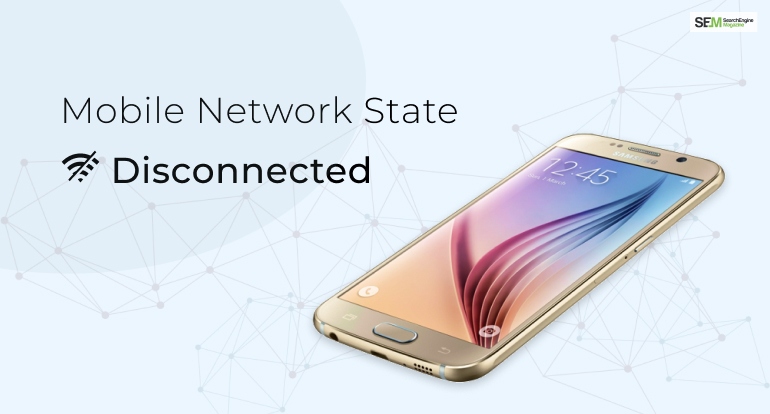SEO Services in Chichester: Choosing the Right Partner
Apr 11, 2025

Apr 11, 2025

Apr 08, 2025

Mar 29, 2025

Mar 29, 2025

Mar 29, 2025

Mar 29, 2025

Mar 27, 2025

Mar 27, 2025
Sorry, but nothing matched your search "". Please try again with some different keywords.


Keeping the data of a company safe is an integral part of a company’s success. Ransomware may not be directly targeting your company. However, data keeping is critical to the way you operate your business. Managing your company includes keeping your client and employees’ data not accessible to third parties. At times, businesses pay less attention to the risks associated with data security which could have a long-term effect on their company.
Over the years, many companies have adopted a remote work culture. In-house systems may be more accessible for vulnerabilities. Employees using personal tech for database protection may provide an opportunity for bad actors to strike. They could also become phishing victims, one of the most significant threats to a company’s data. Furthermore, the company may experience insider risk if its employees do not secure data.
Here is what you should know to ensure the security awareness of your staff and develop a comprehensive data protection strategy.
Identifying the security topics to discuss with your staff is an integral part of raising data security awareness within your business or company. Consider the potential risks your employees may face and the medium through which it may happen. Typically, employees will work with the Internet to execute daily activities.
You must ensure to focus your training on this aspect. Phishing is inevitable when it comes to email and the internet. They may also face malware, ransomware, and drive-by-downloads. Hence, these are the reasons you must come up with an actionable plan and training on the above topics.
Training your employees on keeping your company’s data safe must be deployed company-wide. Within a few seconds, third parties can breach your data, causing you to lose precious information.
Employees should understand that protecting the company’s data is not limited to the IT department alone. Training levels may vary; however, from the IT desk to the lowest-ranked employees, everyone must have a basic knowledge of threats. As an employer, you should always report if you suspect a breach by an employee, it is essential that this is looked into privately and professionally to determine how to proceed. If you haven’t got any proof then it may end up not being proven, so you may need to consider hiring a private investigator agency to get a hold of the proof you will need and determine if this is cause for an escalation.
Start data security training as early as possible, even if it will not be detailed. You should do this for two reasons: first, to reduce data breach risk due to ignorance of common practices. Secondly, new employees will understand earlier that you prioritize data security as a company’s culture. Furthermore, with the use of cloud managed data center services, you can implement policies within your organization’s digital structure that reinforce and ensure security.
New hires are exposed to massive amounts of information while you onboard them. Chances are that they will forget some important points. Hence, you must communicate the rules of basic data security to them. For instance, you can encourage them to set up secure passwords and use antivirus software.
Do your best to ensure security training information remains fresh in your employee’s heads. An excellent way to do this is by hanging an infographic in your office or sending videos related to data security issues.
However, these practices don’t mean your staff has acquired basic data security and protection training. Remember that not all your employees will watch the video, and some will probably ignore the infographics.
Formalize your data security training and ensure it gives employees a clear structure. You can update it regularly by organizing your security awareness training with tools like eFront.
A data breach can take place online or offline. So, it would be best not to ignore discussing physical security. Ensure a clean desk policy to ensure your workers sort out data-sensitive files.
Another thing to consider is to request your employees to shred irrelevant documents rather than dispose of them in the trash. Pay more attention to unlocked or unattended devices and monitor entries into your company’s premises by verifying identities.
Threats are inevitable; hence, you should remind your employees about data protection regularly. Within a few months, chances are that employees may find it difficult to remember what they have learned. As time goes on, some may even pay less attention to data hygiene rules or even pay less attention to security alertness.
To prevent this from happening, you should consistently carry out data security training. Think of conducting a refresher training or seminar quarterly. Another way to do this is by sending the latest relevant information, videos, and publications.
Typically, it would help if you carry out data security and protection training analysis from time to time. It will help you figure out weaker spots and potential threats. However, you can start training your employees on the following topics.
Password security: Encourage workers to always use a solid and unique password for the company’s account. Inform them not to share any of the credentials with third parties. You may also advise them to use a password manager such as Dashlane or 1Password.
Physical security: Talk about basic data hygiene rules that can reduce the rate of illegal access to data.
Phishing emails and social engineering scams: Train your employees to spot attempts that may occur via email, phone, or in person. Encourage them to check any suspicious callers or texters on PhoneHistory. Train them constantly to keep the company’s sensitive information confidential. You should also train them on the aspect of authorizing money transfers.
Malware: Malware is a danger most companies struggle with. Some common ones include viruses, spyware, and more. Most of this malware is hidden in links and files. They can also come in software programs. Train your employees on how malware can create potential threats and attack sensitive information within the system.
At times, data breaching may not come from an insider. Your remote workers and those who regularly travel for business can also be a source of a data breach. Therefore, you must include remote and mobile workers in your data privacy training.
Companies continue to face threats from different sources, mostly from cyber attackers. However, you, as an employer, can cut down the risks associated with losing your data to third parties. Ensure that you carry out data protection training on an ongoing basis. Keeping a company’s data safe is key to stable growth and success.
Read Also:
Abdul Aziz Mondol is a professional blogger who is having a colossal interest in writing blogs and other jones of calligraphies. In terms of his professional commitments, he loves to share content related to business, finance, technology, and the gaming niche.
View all Posts
SEO Services in Chichester: Choosing the Righ...
Apr 11, 2025
Ahrefs Vs Semrush: Which Is The Better SEO To...
Apr 08, 2025
Why Headless CMS Works Well for EdTech Startu...
Mar 29, 2025
Building Topical Authority to Excel in Search...
Mar 29, 2025
The Impact of Professional Recruitment Servic...
Mar 29, 2025

